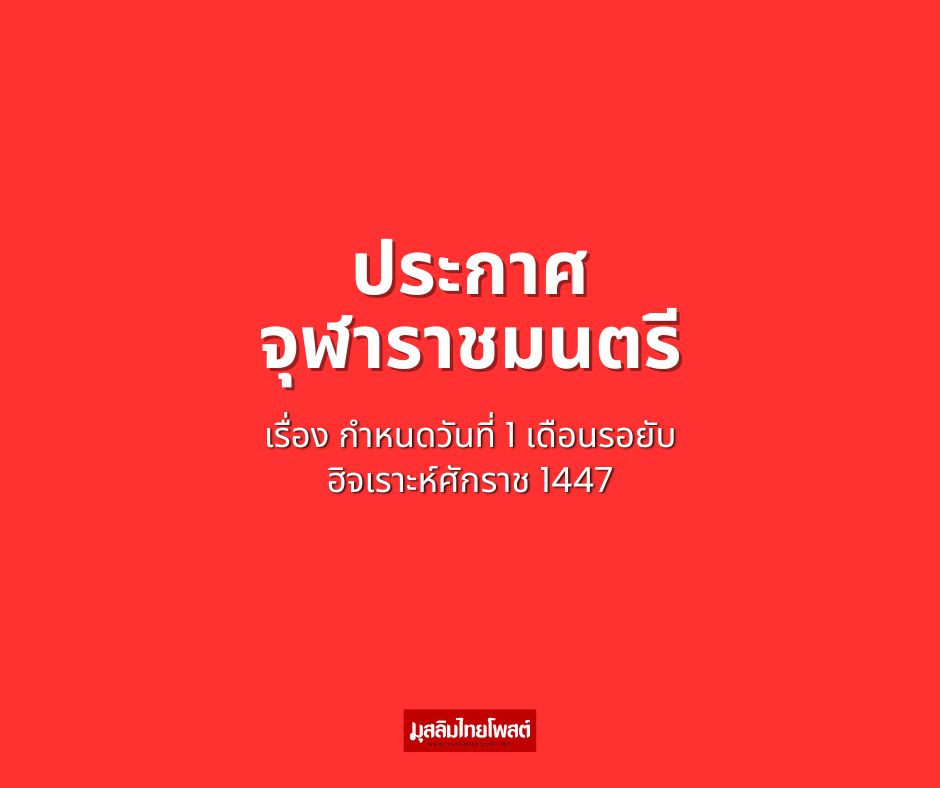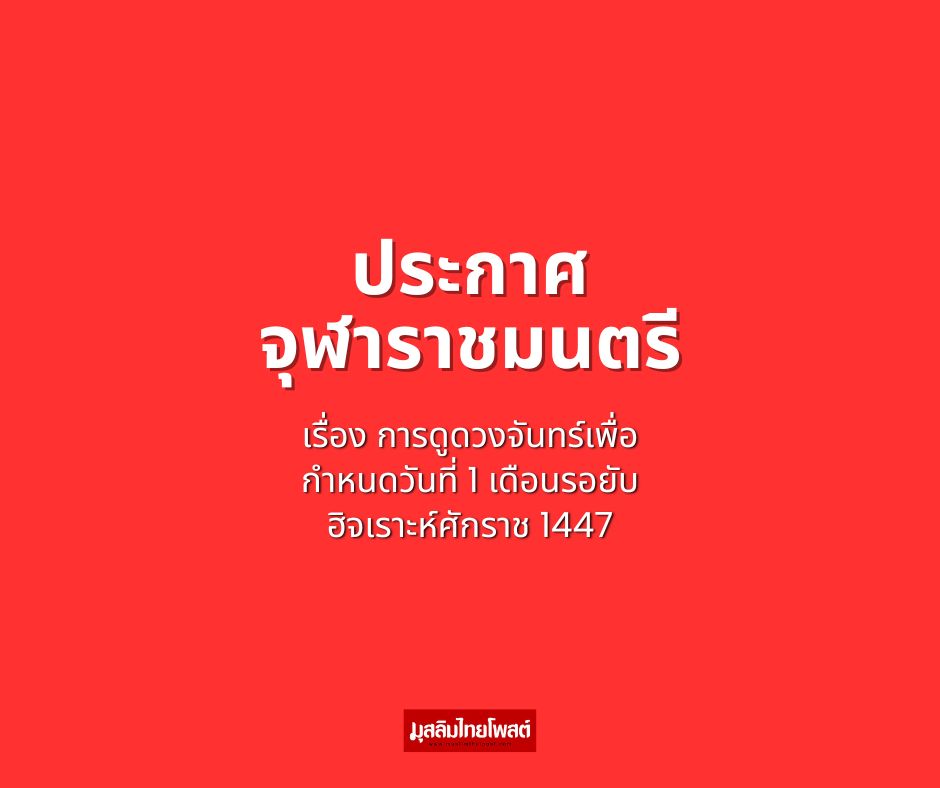ขอขอบคุณข้อมูลภายใต้ความร่วมมือระหว่างกระทรวงสาธารณสุขและวิชาการดอทคอม
htts://ict.moph.go.th/English/Eindex.htm
Adjective |
| Adjective ( คุณศัพท์ ) คือคำ ( word ) วลี ( phrase ) หรือประโยค ( sentence ) ซึ่งใช้อธิบายหรือขยายคำนาม หรือสรรพนาม ให้ได้ ความชัดเจนยิ่งขึ้น กล่าวคือเป็นการบอกให้รู้ลักษณะคุณสมบัติของนามหรือสรรพนามนั้นว่าเป็นอย่างไร เช่น good, bad, new, hot, my, this โดยทั่วไปการวางตำแหน่ง คุณศัพท์ในประโยคจะวางได้ 2 แบบ |
- ใช้วางประกอบข้างหน้านาม ( attributive use ) ที่มันขยาย
She is a beautiful girl. เธอเป็นคนสวย ( beautiful ขยายนาม girl)
These are small envelopes. พวกนี้เป็นซองเล็กๆ ( small ขยายนาม envelopes) - ใช้วางเป็นส่วนของกริยา ( predicative use ) โดยอยู่ตามหลัง verb to be เมื่อ adjective นั้นขยาย noun หรือ pronoun ที่อยู่หน้า verb to be
The girl is beautiful. เด็กผู้หญิงคนนั้นสวย
( beautiful เป็นคุณศัพท์ที่ตามหลัง verb to be ขยาย girl และ the เป็นคุณศัพท์ขยาย girl เช่นกัน
These envelopes are small. ซองพวกนี้มีขนาดเล็ก
( small เป็นคุณศัพท์ที่ตามหลัง verb to be ขยาย envelopes ,these เป็น คุณศัพท์ขยาย envelopes เช่นกัน )
She has been sick all week. เธอป่วยมาตลอดอาทิตย์
( sick เป็น คุณศัพท์ ที่ตามหลัง verb to be ขยายสรรพนาม she )
( You) Be careful. ( คุณ ) ระมัดระวังด้วย
( careful เป็นคุณศัพท์ที่ตามหลัง verb to be ขยาย you ซึ่งในที่นี้ละไว้เป็นที่เข้าใจ )
That cat is fat and white. แมวตัวนั้นอ้วนและมีสีขาว
( That เป็นคุณศัพท์ประกอบหน้านาม fat และ white เป็นคุณศัพทซึ่งเป็นส่วนของกริยาขยาย cat
หลักเกณฑ์อื่นๆ
1. คุณศัพท์ที่ประกอบหน้านามไม่ได้ ต้องวางหลัง verb to be หรือ linking verb* เท่านั้นเรียกว่าเป็น predicate adjective ได้แก่
| alike | เหมือน | afraid | กลัว |
| asleep | หลับ | alone | โดยลำพัง |
| awake | ตื่นอยู่ | alive | มีชีวิตอยู่ |
| aware | ระวัง | ashamed | ละอาย |
| afloat | ลอย | unable | ไม่สามารถ |
| content | พอใจ | worth | มีค่า |
| ill | ป่วย | well | สบายดี |
เช่น
These two women look alike. ผู้หญิง 2 คนนี้ดูเหมือนกัน ( look เป็น linking verb, alike เป็น predicative adj.)
The boy is asleep. เด็กชายกำลังนอนหลับ ( ทำเป็น attributive adj. ได้คือ The sleeping boy. )
The sky is aglow. ท้องฟ้าสว่างไสว ทำเป็น attributive adj. ได้คือ The glowing sky.
* linking verb หมายถึง กริยาที่ใช่เชื่อมประธาน ( Subject) กับคำอื่นให้สัมพันธ์ กันเพื่อช่วยขยายประธานของประโยค ให้ได้ใจความสมบูรณ์ที่นอกเหนือไปจาก verb to beเช่น appear, become, feel, get, grow,keep, look, go, remain, seem, smell, sound, taste, turn.
2. คุณศัพท์ที่ใช้เป็นส่วนของกริยา ( verb to be ) ไม่ได้ เช่น
| former | ก่อน | latter | หลัง |
| inner | ภายใน | outer | นอก |
| actual | ในทางปฏิบัติ | neighboring | ใกล้เคียง |
| elder | อายุมากกว่า | drunken | เมา |
| entire | ทั้งสิ้น | shrunken | หด |
| especial | โดยเฉพาะ | wooden | ทำด้วยไม้ |
| middle | กลาง |
เช่น A wooden heart. (ไม่ใช่ A heart is wooden )
3. ถ้าคุณศัพท์นั้นทำหน้าที่ขยายนามหรือสรรพนามที่เป็นกรรมของประโยค ต้องวางคุณศัพท์ไว้หลังกรรมนั้นเพื่อให้ได้ความชัดเจนยิ่งขึ้น เช่น
We considered his report unsatisfactory. เราพิจารณาเห็นว่ารายงานของเขาไม่เป็นที่น่าพอใจ
(unsatisfactory เป็นคุณศัพท์ขยาย his report ซึ่งเป็นกรรมของประโยค )
4. เมื่อใช้กับข้อความแสดงการวัด ( measurement) วางคุณศัพท์ไว้หลังนาม หรือสรรพนาม เช่น
My uncle is sixty years old. ลุงของฉันอายุ 60 ปี (ไม่ใช่ My uncle is old sixty years.)
This road is fifty feet wide. ถนนนี้กว้าง 50 ฟุต (ไม่ใช่ This road is wide fifty feet.)
5. เมื่อคุณศัพท์หลายคำประกอบนามหรือสรรพนามเดียว จะวางข้างหน้าหรือข้างหลังก็ได้ โดยจะต้องมี and มาคั่นหน้าคุณศัพท์ตัวสุดท้าย เช่น
The building, old and unpainted, was finally demolished. ตึกซึ่งเก่าและสีทรุดโทรม
ในที่สุดก็ถูกทุบทิ้ง ( วางข้างหลัง ) หรือ
The old and unpainted building was finally demolished. ( วางข้างหน้า )
He bought a new, powerful and expensive car . เขาซื้อรถใหม่ที่กำลังแรงสูงและราคาแพง หรือ
He bought a car, new, powerful and expensive.
6. คุณศัพท์วางตามหลังคำสรรพนาม ( pronoun ) ที่มันขยาย ต่อไปนี้
| someone | anyone | no one | everyone |
| somebody | anybody | nobody | everything |
| something | anything | nothing | everybody |
เช่น
She wanted to marry someone rich and smart. เธอต้องการแต่งงานกับใครสักคนซึ่งหล่อและรวย
I'll tell you something important. ฉันจะเล่าบางอย่างที่สำคัญให้คุณฟัง
7. วาง คุณศัพท์ไว้หลังนามหรือสรรพนามถ้าคุณศัพท์นั้นมีข้อความ ( prepositional phrase ) ประกอบอยู่ เช่น
Thailand is a country famous for its food and fruits. ไทยเป็นประเทศที่มีชื่อเสียงในเรื่องอาหารและผลไม้
(famous เป็นคุณศัพท์ famous for food and fruits เป็นข้อความขยายคำนาม country)
She is the woman suitable for the position. เธอเป็นผู้หญิงที่เหมาะสมกับตำแหน่ง
(suitable เป็นคุณศัพท์ suitable for the position. เป็นข้อความขยาย woman )
8. คุณศัพท์บางคำมีความหมายต่างกัน ถ้าวางในตำแหน่งที่ต่างกัน เช่น
He is and old friend. เขาเป็นเพื่อนเก่า
My friend is old. เพื่อนของฉันสูงอายุ
The teacher was present. ครูมาอยู่ที่นั้นด้วย
The present teacher. ครูคนปัจจุบัน
Harry was late. แฮรีมาสาย
The late Harry. แฮรี่ผู้เสียชีวิตไปแล้ว
9. กลุ่มของคำที่เป็นวลี ( phrase) หรืออนุประโยค ( clause ) เมื่อขยายคำนาม ต้องวางหลังนามหรือสรรพนามที่มันประกอบ เช่น
The woman sitting in the chair is my mother . ผู้หญิงที่นั่งที่เก้าอี้เป็นแม่ของฉัน
( sitting in the chair เป็นวลี ขยายคำนาม the woman)
The man who came to see me this morning is my uncle. ผู้ชายที่มาหาฉันเมื่อเช้านี้คือลุงของฉัน
( who came to see me this morning เป็นอนุประโยคขยายคำนาม the man )
หมายเหตุ ถ้านามใดมีทั้งวลี และ อนุประโยค มาขยายพร้อมกัน ให้เรียงวลีไว้หน้าอนุประโยคเสมอ เช่น
I like the picture on the wall which was painted by my friend. ฉันชอบรูปภาพที่แขวนบนข้างซึ่งวาดโดยเพื่อนของฉัน
( on the wall เป็นวลีขยาย the picture) ( which was painted by my friend เป็นอนุประโยคขยาย the picture )
There is only one solution possible. (possible วางหลังคำนาม solution )
There are some tickets available. ( available วางหลังคำนาม tickets)
10. คุณศัพท์ที่เป็นสมญานามไปขยายคำนามที่เป็นชื่อเฉพาะ ให้วางหลังคำนามนั้นเสมอ เช่น
Alexander the Great
William the Conqueror
11.โดยปกติคุณศัพท์จะต้องวางหลัง article ที่เป็น a หรือ an เช่น a good man ยกเว้นคุณศัพท์ต่อไปนี้ เมื่อนำไปขยายคำนามที่เป็นเอกพจน์และนับได้ ให้วางคุณศัพท์นั้นไว้หน้า a หรือ an ได้แก่ half, such, quite, rather และ many เช่น
John is such a good man. ( a good man เป็นนามเอกพจน์ )
This is rather a valuable picture ( a valuable picture เป็นนามเอกพจน์ )
12. เมื่อ adjective หลายคำประกอบคำนามเดียว ควรวางลำดับก่อนหลังดังนี้
Article | บอกจำนวนนับ | คำอธิบายลักษณะ | นามรองทำหน้าที่คุณศัพท์ | นามหลัก | |||||
คุณภาพ | รูปร่าง | อายุ | สี | สัญชาติ | วัสดุ | ||||
A |
| beautiful |
| old |
| Italian |
| touring | car. |
An |
| expensive |
| antique |
|
| silver |
| mirror. |
The | four | gorgeous | long-stemmed |
| red |
|
|
| roses. |
Her |
| short |
|
| black |
|
|
| hair. |
Our | two |
| big | old |
| English |
|
|
sheep- |
| Some | delicious |
|
|
| Thai |
|
| food. |
Many |
| modern | small |
|
|
| brick |
| houses. |



